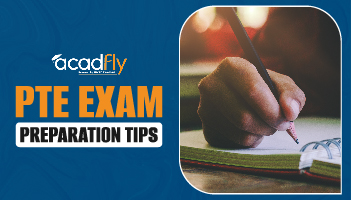

Are you planning to study abroad to secure your future? Every year, millions of Indian students travel overseas to pursue higher education. The most popular study abroad locations for Indian students are Canada, Australia, the United States, the United Kingdom, and the UAE.
Every year, the number of Indian students studying abroad increases dramatically. Whether they want to study in Canada or the United States, Indian students find greater opportunities abroad. Amusingly, according to a media source, India will outnumber China in terms of foreign student enrolment in the United States in 2025.
Clearly, the number of Indian students studying overseas is expanding rapidly. It is correct to predict that it will peak for at least another 8 to 10 years, if not longer! However, there is something you must admit. Parallel to the increase in international students, governments are enacting more immigration restrictions.
Important Document Checklist for Studying Abroad in 2025
More students are preparing to study abroad than ever before. Every day, international students descend on countries such as Canada, the United States, and Australia. This puts further strain on the country's housing, healthcare, employment, and other public services.
Countries will now constantly fine-tune and change their immigration policy. To reduce the flood of overseas students, countries are implementing additional screening filters while processing visa applications. As a result of its expanding housing issue, Canada has already implemented restrictions and attempts to limit overseas students.
The basic line is that studying abroad will become more competitive. The evolving study abroad scenario necessitates more prudence when it comes to university/college and visa applications.
To succeed in your study abroad aspirations, make sure you mark off all of the boxes on the study abroad checklist.
We have always made sure that students and parents receive trustworthy and relevant information. Having said that, the checklist we give to you here is comprehensive and organised into categories. First, we give the document checklist that Indian students moving abroad must follow when applying to universities overseas.
Application Form
Filing the application form for a certain institution or university remains the essential need. Different colleges have different requirements for overseas students. In addition, each university and institution has its own application cost, which is usually low. However, certain platforms, such as Common App, allow you to apply to many institutions at once. However, applying using the Common App can often be difficult. We will assist you with every aspect of your abroad university/college applications.
Academic Transcripts
Academic transcripts are one of the most important papers to submit when applying to universities and schools overseas. Academic transcripts, which include credits and degrees, display your whole academic background from past schooling.
Statement of Purpose
A well-written Statement of Purpose might create a better case for you to pursue your study abroad objectives. On the contrary, an inadequate Statement of Purpose might jeopardise the chances. To clarify, a SOP is a summary of your academic background, professional experience, and career objectives.
An SOP also explains why you're applying to a certain program at a specific school in a particular country. Every country has its own set of SOP rules. For example, drafting a SOP for Canada will be very different from writing a SOP for Australia. In any event, you don't have to worry about your SOP. Leave it to the specialists at Silver Fern Education Consultants.
Proof of Funds
Meeting the financing criteria is critical for Indian students who are studying abroad or intend to do so. If you wish to study in Canada, you must satisfy the GIC and other financial conditions. If you wish to study in Australia, your proof of finances should meet Australia's GTE standards.
In the traditional sense, evidence of finances includes tuition, living expenses, and insurance. However, you should not become confused. Allow our skilled counsellors to help you through a smooth and comprehensive application procedure.
English Proficiency and Other Tests Scores
For many major study abroad destinations, you must fulfil English proficiency standards. Requirements vary between institutions and programs. The most generally approved English proficiency exams are IELTS, PTE, Duolingo, and TOEFL.
In addition to English proficiency examinations, you may be required to take additional tests to fulfil university requirements. These examinations include the SAT, ACT, GMAT, GRE, and APs. It is not necessarily necessary to take the SAT or ACT, but they certainly provide significant value to your application.
Letters of Recommendation
What could be more valuable to an application than a personal reference from a principle, counsellor, professor, or employer? A letter of recommendation that highlights your characteristics, strengths, and accomplishments provides you an advantage over other candidates. Other Documents include essays, passport, resume/CV, proof of job experience and Medical examination.
Following this checklist is the second section, your study abroad packing list. Once you have gotten your offer letter from your preferred university and your visa, you are ready to fly. The following section provides a thorough checklist for Indian students travelling overseas.
Your Study Abroad Packing List
Studying abroad is an exciting idea for Indian students, as it provides an unprecedented opportunity for personal development and intellectual enrichment. However, adapting into a new nation might be difficult without good advice.To guarantee a successful transition, you'll need a carefully prepared study abroad handbook suited to the needs of Indian students, complete with insights and practical guidance. So, Physics Wallah has created an essential checklist for students planning to study abroad. Each step is critical in creating a successful and satisfying foreign education experience, from obtaining necessary travel insurance to precisely coordinating airport transfers and accommodations.
Don't allow your excitement about studying abroad overwhelm you. Before boarding the plane, double-check that you have packed all of the required goods. Here is a brief checklist for you.
Copies of all your documents.
Make sure you have printed copies of all essential papers. These include your passport, letter of admission, student visa, ID, and other documents. At the same time, ensure that you keep soft copies of all papers. You may organise all of your soft copies on Google Drive so that they are conveniently accessible.
Check for your flight's weight restrictions.
Check-in and cabin luggage specifications vary per airline. Before you begin packing, ensure that you have properly reviewed the specs. It will save you the headache of decreasing your weight later or paying an additional fee to the airline. For Indian students travelling overseas, it is essential to research the climate of the country/region they would be visiting. For example, if you want to study in Canada, you should bring additional thick clothes to protect yourself from the cold. Purchasing clothing after you arrive might be costly and strain your finances.
Local Currency
We do not recommend that you carry a lot of cash with you. However, you must carry a little quantity of your destination country's native currency. This cash will assist you cover your urgent costs at the airport or after you leave. However, make sure you keep this money safe. You may divide the amount further into smaller portions and store them in other locations. For example, you can keep some money in your check-in luggage, some in your handbag, and some in your wallet.
Name Tags on Your Luggage
This may appear to be a rather conventional statement, yet it is completely pertinent. There may be instances where your bag is similar to someone else's bag. There may be situations in which your luggage is delayed. Not to worry you, but such unusual incidents do happen on occasion.The simplest method to avoid such scenarios is to attach name tags on your bags. It helps to identify your bags in case of confusion. It also helps to avoid instances in which someone else inadvertently takes your luggage.
Conclusion
Getting the necessary documentation for study abroad in order might be stressful, but remaining organised and prepared makes all the difference. Consider it the first step in your exciting new adventure. Keep your checklist accessible, and you'll be able to begin your adventure with confidence. Explore PW Abroad's resources for further assistance and support at every stage of your journey. Good luck!
FAQs
1. What should I do if I have difficulty acquiring specific documents?
If you are having trouble getting certain papers, such as transcripts or financial evidence, contact your selected institution's admissions office or a study abroad coordinator for assistance. They can offer helpful advice and options to help you satisfy the criteria.
2. What documents are required to study abroad?
A valid passport, an admission letter from your selected university, financial documentation demonstrating your capacity to cover expenditures, academic transcripts, proof of language competency, and a student visa for the host nation are all standard requirements. However, particular standards may differ by nation and organisation.
3. How long in advance should I begin gathering these documents?
It's best to begin document preparation at least 9-12 months before your desired start date. This offers plenty of time to complete standardised examinations, get financial paperwork, and submit visa applications, guaranteeing a smooth transfer.
4. Is TC necessary for overseas studies?
There might be several reasons for obtaining a transfer certificate attestation. The primary goal of obtaining this attestation is to get admission to an international school. Although it is a non-educational certificate attestation, it is necessary in the majority of overseas education programs.
Frequently Asked Questions









